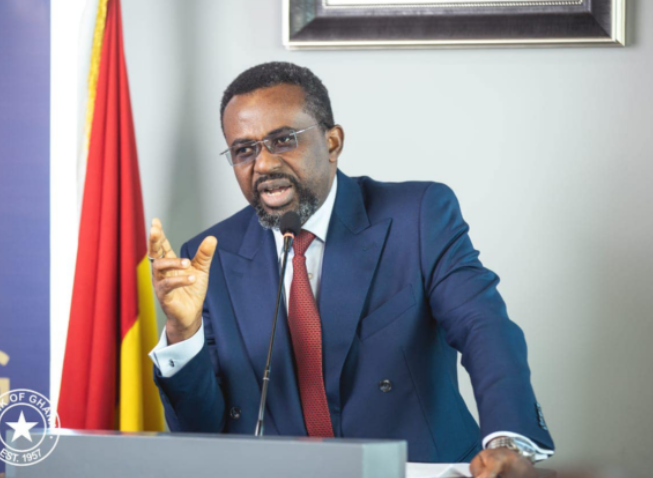The Governor of the Bank of Ghana, Dr. Johnson Pandit Asiama, has called for collaboration to promote fintech and digital initiatives to enhance Africa’s integration.
He said fintech is bridging access gaps, particularly for underserved and remote communities, and cross-border digital payments are gaining traction, promising to ease trade frictions and accelerate regional commerce.
The Governor was speaking at the 3i Africa Policy Forum on the theme: “One Africa, One Market: Driving Innovation, Investment, and Impact for a Connected Future.”
The forum presented a unique opportunity to build shared momentum and aimed to address key levers for driving Africa’s digital financial integration, including attracting sustainable investment into fintech and digital finance, aligning regulatory approaches to unlock cross-border payments, and empowering SMEs as drivers of regional trade and innovation.
Other initiatives discussed include operationalizing the Digital Trade Protocol to support regulatory convergence, ensuring responsible and secure adoption of stablecoins and digital assets, and unlocking investor capital through strategic de-risking frameworks.
Leaders in policy, regulation, finance, and technology who are shaping Africa’s digital transformation attended the forum.
Dr. Asiama said the forum was not merely to reflect on last year’s Summit outcomes but to translate them into clear, executable strategies.
“The focus is implementation: scaling fintech, digital assets, and cross-border payment solutions to deepen financial inclusion and intra-African trade in alignment with the AfCFTA,” he said.
He noted that regulatory sandboxes and innovation hubs were taking root, offering safe environments to test new technologies within the realities of African contexts.
These gains are being reinforced by modern regulatory approaches, pilot programs, innovation offices, and digital public infrastructure frameworks—all designed to promote inclusive finance, enhance SME participation, and unleash the creativity of Africa’s youth and entrepreneurs.
The Governor said the Bank remains firmly committed to the agenda. Their work with the Pan-African Payment and Settlement System (PAPSS), and more recently the bilateral fintech passporting collaboration with the National Bank of Rwanda, reflect their conviction that regional integration is achievable through trust-based partnerships.
“We are also proud to announce our collaboration with the National Bank of Rwanda and the Global Financial Technology Network (Singapore) on the Next-Gen Digital Payment Infrastructure Project (DPI),” he added.
This initiative aims to modernize Africa’s cross-border payments ecosystem through a central bank-led, innovation-enabled approach co-developed with fintechs and financial institutions.
The project will support scalable pilots that can serve as templates across the continent, accelerating interoperability and unlocking the full potential of Africa’s digital economy.
In a keynote address, Vitaliy Kramarenko, African Department Deputy Director at the IMF, urged policymakers to focus on developing supporting infrastructure, digital finance innovation, and regional trade facilitation, among other priorities.
He emphasized the need for creative solutions, including public-private partnerships, to continue advancing digital infrastructure development.
Despite significant progress in mobile penetration—with cellular subscriptions increasing rapidly since 2000 to about 80 subscriptions per 100 people in sub-Saharan Africa—much more remains to be done.
“Also, despite falling behind other regions in traditional access to finance, as proxied by the number of commercial bank accounts per adult, the region is ahead in mobile financial access, such as the use of mobile money accounts,” he added.
Mr. Kramarenko urged governments to provide essential payment infrastructure and sound policy frameworks to mitigate risks, build resilience, and harness the benefits of digital payments.


